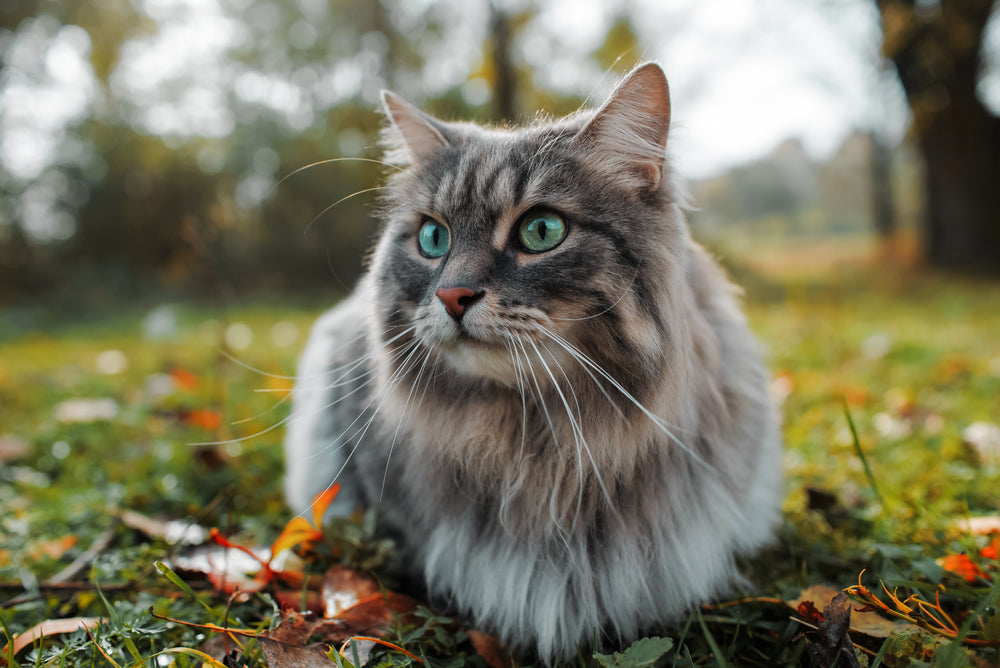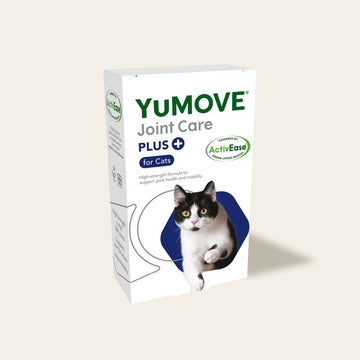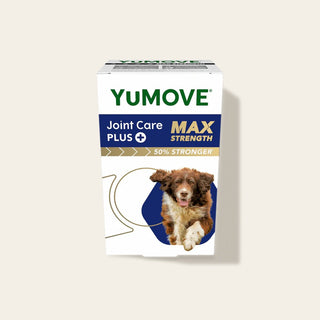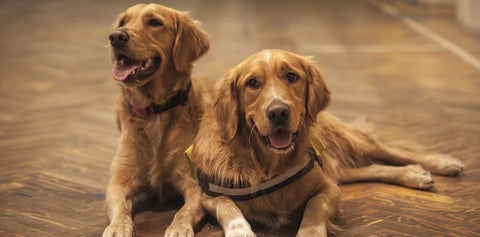

6 secret signs your cat may need joint support
Cats are best known for their grace and poise – often leaping around the house with almost unbelievable ease. But what happens when these agile creatures start to show changes in their mobility?
Joint issues in cats are more common than you might imagine. In fact, 60% of cats may experience changes to their joint health by age 6, rising to 90% by age 12.
Because these changes can be subtle, they often go unnoticed – meaning cats don’t always get the level of support they deserve.
Here, cat behaviourist Lucy Hoile chats to us about the everyday signs of feline joint issues and what you can do to support your pets.
Why are feline joint issues hard to spot?
Cats are experts at hiding changes in the way they move. This comes from their evolutionary background – as solitary animals, showing weakness could once have put them at risk in the wild.
Of course, that doesn’t mean today’s cats don’t enjoy our company. It simply helps explain why signs of joint issues can sometimes be tricky to notice.
“The biggest misconception is that cats are solitary animals and don’t want to spend much time around us because – actually – most cat owners realise quite quickly that that’s not the case,” says Lucy.
Cats vs dogs: why joint changes can be easier to miss
Cats and dogs live very different lifestyles, and that can make it harder to spot joint issues in our feline friends.
With dogs, we often notice changes because they share our routines – for example, slowing down on a familiar walk. Cats, on the other hand, are far more independent and tend to manage their own exercise.
That’s why it’s important to pay attention to how much activity your cat chooses for themselves. Subtle changes in play or exploration can be useful signs that their joints may need a little extra support.
What to look out for
1. Any changes to your feline friend’s usual behaviour
This might seem like a broad point, but it’s an important one. Cats are unique and full of character – some are naturally aloof and independent, while others thrive on play and interaction.
What matters most is knowing your own cat. If you spot changes in their normal behaviour, it can be a useful sign that something isn’t quite right. Subtle shifts in demeanour are often the first clues that your cat may need extra support.
As a cat owner, you spend far more time with your pet than anyone else, so trusting your instincts is valuable.
2. Always sleeping curled up in a ball
Cats often sleep curled up in a ball, but this could still be a warning sign, says Lucy.
“It’s quite normal for cats to sleep curled up in a little ball, but if that’s the only way they ever sleep, that might indicate that they’re sort of ‘uncomfortably resting’,” says Lucy. “Whereas with your happy, relaxed, and comfortable cats, you’ll often see them stretching, splayed out on the windowsill and so on.”
3. Toileting outside the litter tray, aggression, and struggling to reach favourite areas
It’s never pleasant if your cat starts toileting outside of the litter tray, but according to Lucy, it can be one of several signs that something’s wrong:
“Toileting outside of the tray is a massive sign that something’s wrong. Sudden aggression, too. And not accessing the high places – people will often say, “Oh, she used to love sitting on top of the kitchen cabinet or the fridge, but she doesn’t do it anymore.” She probably still wants to, but she can’t!”

Joint Care PLUS for Cats
- Designed to support older and stiffer cats
- Helps keep your cat active and mobile
- Sprinkle over food or feed by hand
4. Changes in grooming habits, becoming more unkempt
Cats are known for their meticulous grooming habits. If you notice your cat is grooming less frequently or with less vigour, it can be a sign that joint stiffness may be getting in the way of their usual beauty routine.
5. Changes in appetite and weight
6. Being more hesitant before jumping up
If a previously impulsive pouncer starts pausing before making a leap, you might put it down to emotional maturity. But it can also reflect physical changes – with your cat taking a moment to decide if the jump is worth the effort.
As Lucy explains: “It’s that fluidity that lets you know a cat’s joints are in good condition. Older cats often aren’t doing that, and if they were to jump from one surface to the other, you’d probably find there’s a bit more hesitation beforehand, as they weigh up the pros and cons and decide whether it’s even worth doing.”
What to do about feline joint issues
If you start to notice some of the subtle signs that your cat’s mobility may be changing, there are helpful steps you can take to support them.
Consult your vet
If you notice signs that your cat’s mobility may be changing, it’s always a good idea to book a check-up with your vet. They can examine your cat, suggest helpful lifestyle adjustments and advise on the best ways to support their wellbeing.
Getting your cat to the appointment isn’t always easy, but there are ways to make it less stressful. Try leaving their carrier out at home so they can explore it at their own pace, adding familiar bedding or even a few treats inside. And if your cat is reluctant to walk in, gently turn the carrier upright and lower them in rear legs first – many owners find this technique makes the process smoother.
Lifestyle modifications to support accessibility
Making small adjustments at home can help your cat continue enjoying their favourite spots. The simple changes Lucy recommends include:
- Raising food and water bowls
- Adding ramps, steps or shelves to give access to higher places
- Ensuring your senior cat has comfortable, easily accessible sleeping areas
Give them YuMOVE Joint Care PLUS for Cats
YuMOVE Joint Care PLUS for Cats, is a high-strength formula designed to support older cats, or those who may need extra joint support. It contains 20% more ActivEase® Green Lipped Mussel than standard YuMOVE Joint Care for All Cats, providing additional Omega-3 fatty acids to help soothe joints.
Many cats begin to experience changes to their joint health from around age six, so offering support at this stage – or even earlier – can be a helpful step in keeping them active.




